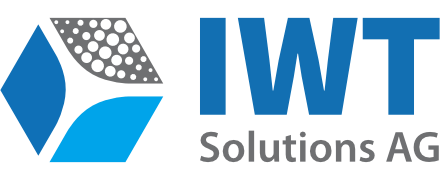05 Jun DVGW study proves: Germany’s gas pipelines are ready for hydrogen
DVGW study proves: Germany’s gas pipelines are ready for hydrogen
This news, disseminated on the occasion of a recently completed DVGW research project, complements the good news of the agreement reached by the coalition government on the important climate issue in March of this year. With this joint research work by industry, service providers and research institutions, Germany as an industrial location is showing its strengths. In an international comparison, according to the DVGW in a webinar on the topic, it is way ahead.
IWT-Solutions AG, as a provider of component safety analyses for steel structures based on fracture mechanics, sees itself well positioned against this background, as it became clear in the course of the study that fracture mechanics plays a major role in safety assessment. Our experience in international projects and studies confirms this approach. Last but not least, the topic of hydrogen and fracture mechanics was also intensively discussed at the international Pipe-Line Conference TFAP2022 (Technology for Future and Agening Pipelines) in Ghent.
As users of fracture mechanics analyses, we can use the data resulting from DVGW research for our calculations in the context of hydrogen use. Nevertheless, we still see a need for clarification in analogy to other areas of application of fracture mechanics. For example, the question arises as to whether material scatter is reliably covered by the previous tests, especially for the numerous welded joints, but also for the km-long pipes.
We therefore expect that the result now presented will be deepened by further studies. We also consider it necessary to develop national or European rules as an alternative to the widely used American standard, ASME B31.12. For this purpose, we have actively participated in the DIN H2 Standardisation Roadmap Hydrogen Technologies and are active in three subgroups (din.de/de/forschung-und-innovation/themen/wasserstoff/normungsroadmap-wasserstoff). In the field of pressure vessels and pipes (EN 13445 and EN 13480), IWT-Solutions AG has been working for a long time on Part 2 “Requirements and Materials” and is now also participating in a newly established task group specifically for hydrogen applications.
In the future, we see potential for new testing and qualification methods that are faster and easier to perform. Together with our partner, the Goevert testing laboratory (goevert-gmbh.com) in Essen, we are working on future-proof testing methods for the qualification of materials for hydrogen use.
Also, the digitalisation of component monitoring and maintenance by combining the measurement results of maintenance pigs (vdi-nachrichten.com/technik/energie/pipelines-mit-robotern-gegen-wasserstoffversproedung) with calculation models such as fracture mechanics will make an important contribution to component safety. To this end, modern methods of material mechanics and material modelling are currently being researched by research institutions such as RWTH Aachen, IWM Freiburg as well as BAM Berlin. As a knowledge-driven SME, we are committed to optimising the transformation of such research results into practical applications and standardisation in terms of time and therefore also maintain close contact with these and other research institutions.


